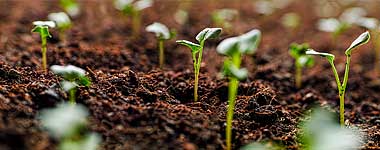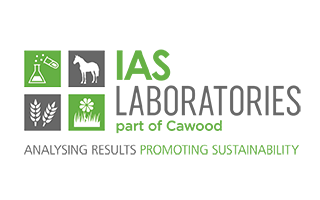Soil Analysis

IAS Laboratories offer a range of soil analysis options which provide essential information on Soil Health and baseline Nutrient Status. It forms the basis for efficient and cost effective use of lime, fertilisers and trace elements. Soil testing is now a key component in Nutrient Management Planning and plays an important role in ensuring that the loss of nutrients from agriculture to surface water is minimised.
Frequently Asked Questions regarding Soil Sampling
- Why should I soil Sample?
The primary function of soil testing on the farm should be to inform a farmer of the soil fertility status. It is also very useful to plan fertiliser applications.
- What are the benefits of Soil Sampling?
Soil testing provides essential information on soil health and baseline nutrient status. It forms the basis for efficient, cost effective use of lime, fertilisers and trace elements. Soil testing is now a key component in Nutrient Management Planning and is playing an important role in ensuring that the loss of nutrients from agriculture to surface water is minimised.
- What months should you take Soil Samples?
Ideally between September & March but try to avoid sampling a field where P & K have been applied until after 3-6 months.
- What size area should I sample?
Divide the farm into fields or areas of minimum 2 – 4ha and maximum 8ha. You can also divide fields based on soil type, cropping history, known growth differences or previous performance.
- How often should I take soil Samples?
It is advised that you test your soils every 3-5 years. However if you got tests previous and had a large correction in soil pH or fertility, it is a good idea to retest sooner rather than later to evaluate if the situation has been corrected.
- Is there anywhere I should avoid when sampling?
Try to avoid any unusual spots such as old fences, ditches, walls, drinking troughs, dung or urine patches or where organic manure or lime has been heaped or spilled in the past.
- What is the correct depth for Soil Sampling?
It is advised to use a Soil Corer when sampling to ensure uniformity. Ensure all soil cores are taken to the full 100mm/10cm/4” depth.
- How many cores do you require for a soil sample?
Take a minimum of 20 cores from the field you wish to sample.
- If I have spread Lime on the field, how long should I leave before testing?
It is advised to leave 2 years before testing after Lime has been applied.
- What should I get my soil tested for?
The basic soil test includes soil pH, Morgans P, Morgans K and lime requirement. You can also test for Nutrients, minerals, organic matter, soil profile heavy metals. A full list is available under Tests on our website.
